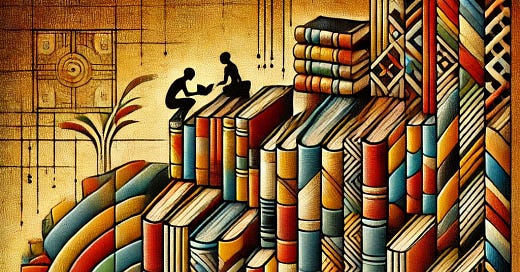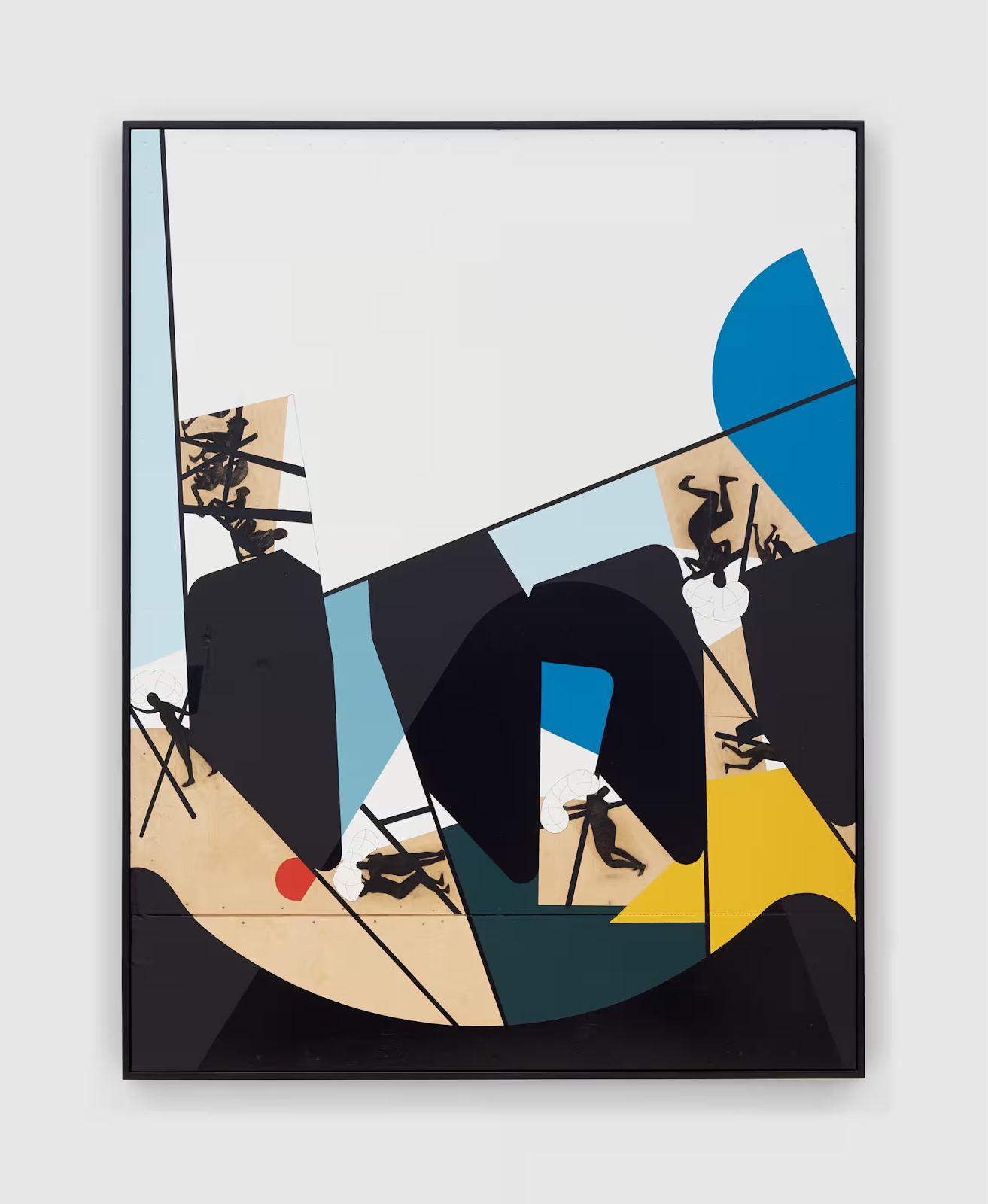
Good Morning from Botswana!
Why You Can’t Find African Literature in Africa—But You Can on eBay
If you’re a literary buff raving about, say, “Nervous Conditions” by Tsitsi Dangarembga, you can grab a used copy for less than the cost of a latte in the UK—but good luck finding it in Zimbabwe, where the author actually lives. Why are African authors’ books so painfully rare on the continent they call home, despite the global hype?
It’s Not You, It’s the Publishing Industry: You’d think with Africa’s astonishingly creative writing scene—look no further than last year’s raft of literary prizes—there’d be African authors in every library, bookshop, and on every street corner hawking bestsellers.
But local publishing is a tricky game: printing is expensive, currencies are weak, and in some places, books are taxed. The upshot: a single novel can cost more than many people’s monthly income.
Take Ethiopia, for instance, where readers join weekly online book clubs, but half of them can’t even get the title being discussed. In Cameroon, a 12:1 textbook-sharing ratio is heartbreakingly normal. Meanwhile, in Zimbabwe, literary icons like Dangarembga can’t catch a break in homegrown bookstores.
With so few homegrown publishers, most African countries import their books—and that markup is brutal. You might score Maaza Mengiste’s The Shadow King for £9 in the UK, but in Addis Ababa it could run you £19 (that’s nearly a week’s salary for a college lecturer).
But here’s a silver lining: In some regions, a local publishing boom is flipping the script. Independent houses like Masobe Books in Nigeria are snapping up rights to international hits, printing cheaper editions for locals, and championing fresh Nigerian talent—100 authors in just a few short years, with jazzy cover designs and stories about real Nigerian life.
A handful of tech-minded upstarts are also finding ways to dodge old-school publishing headaches. From Zimbabwean WhatsApp novels released in short, binge-worthy chapters, to Ethiopia’s brand-new Tuba app that slashes the cost of new books, African readers are finally tapping into the continent’s endless literary goldmine.
Meanwhile, in Kenya, eKitabu’s new imprint Mvua Press is forging alliances with street book vendors, while also nurturing newbie authors in a writer’s café. Their mission? Make African-authored titles soar on African soil—before they become international sensations.
Bottom Line: African literature is on fire (culturally speaking), but readers still face an impossible scavenger hunt just to find local novels. With grassroots publishers, WhatsApp storytelling, and ebook platforms stepping up, the dream is that tomorrow’s African bestsellers will first conquer markets in Kampala and Kinshasa—and then the rest of the world.
The Stateless Artist Making a Statement
Serge Alain Nitegeka has spent most of his life in motion. Forced to flee Rwanda at 11, he moved between countries before settling in South Africa—where he’s still waiting on citizenship. But if paperwork has left him stuck, his art refuses to be. Now on display at New York’s Marianne Boesky Gallery, Configurations in Black is his latest exploration of displacement, identity, and the art of “making do.”
That last part is key: Nitegeka’s introduction to art came in a Kenyan high school where resources were scarce. So he adapted. This habit stuck, shaping his career: early works were painted on shipping crates (some still bear FRAGILE stamps, a little too on the nose) and large-scale installations turned gallery spaces into physical obstacles for viewers to navigate. His latest pieces, though, take a different turn—more color, more movement, more people.
For years, his work stuck to a stark palette of black, white, and red—heavy, deliberate, controlled. Then his daughter was born, and something shifted. Suddenly, blue, green, gold, and teal entered the mix. The paintings in Configurations in Black move away from the rigid, geometric compositions of his past, instead featuring human figures—standing, reaching, bending, sometimes huddled together, sometimes stretching towards something unseen.
Migration? Survival? A dance? It’s up to you.
And yet, while his art travels, Nitegeka remains grounded in the worst way. His legal limbo in South Africa means he can’t attend his own shows. But he takes it in stride. “The show must go on,” he says. “But it’s not going to be like this forever.” A sentiment any refugee—or artist—can understand.
Last Week by Numbers
🇳🇬 8-Year Low: Nigeria's gasoline imports are set to hit their lowest level in eight years as the massive Dangote refinery outcompetes foreign suppliers, boosting domestic fuel independence.
🇲🇱🇳🇪🇧🇫 ECOWAS Exit: Mali, Niger, and Burkina Faso's departure from West Africa’s economic bloc has sparked concerns over regional stability and trade disruptions. The trio, under military rule, makes up over half of ECOWAS territory.
🇧🇯🇹🇬 Militant Spillover: Coastal West Africa, particularly Benin and Togo, is seeing a surge in militant attacks, raising fears that Sahel-based extremist violence is spreading.
🇧🇼 Diamonds Locked In: De Beers and Botswana finalized a diamond sales deal, extending mining licenses for their joint venture, Debswana, until 2054. The deal, first agreed upon in 2023, will increase Botswana’s share of production to 50%.
🌍 Mineral-Backed Currency? The African Development Bank is pitching a new "gold standard" currency tied to Africa’s vast critical mineral reserves to counter the continent’s currency volatility. Dubbed African Units of Account (AUA), the proposed currency aims to attract more energy and green investments.
🌍 Fintech Surge: Africa’s fintech sector is projected to hit $47 billion in revenue by 2028—nearly 5x its 2023 level. Despite slowing investor funding (down 51% in H1 2024), companies are shifting from fast growth to long-term sustainability, with some downsizing and others partnering with telecom firms.
🇿🇦 Polo’s Global Drive: Volkswagen’s African unit exported a record-breaking 131,485 Polo vehicles in 2024, supplying 38 countries in Europe and Asia-Pacific. The Kariega plant in South Africa is now the sole exporter of the model for these markets.
🇿🇦 Diplomatic Snub: U.S. Secretary of State Marco Rubio won’t attend the G20 meeting in South Africa, following President Donald Trump’s threat to cut U.S. funding to the country. South Africa holds the G20 presidency until November 2025.
🎮 Gaming Boom: Africa’s gaming market reached $1.8 billion in 2023, growing six times faster than the global average. The continent now has nearly 350 million gamers, up 10% from 2023, according to Newzoo and Carry1st.
🇿🇼 UAE’s Lifeline: Zimbabwe’s diplomatic pivot to the UAE is paying off—since 2022, the Gulf state has invested $1.4 billion in sectors like gold trading and real estate, making it Zimbabwe’s biggest export partner as the country remains cut off from Western financing.
Food for Thought
“If the food is delicious, the tongue knows.”
— Ghana Proverb







The Author's plight in Africa really hits home for me as I've finished my first novel manuscript since 2020 during the pandemic but haven't published yet for the reasons you outlined in this article. Who knows, maybe I'll finally publish before 2030 (a good decade after completing the manuscript) when I see the market is favourable for it.. until then, I'mma just be keeping it under lock and key and waiting for the tides to change 😄